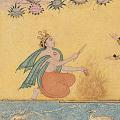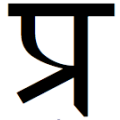21. Innocent Until Proven Guilty: Mimamsa on Knowledge and Language
The Mīmāṃsā school put their faith in sense experience, and argue that the Veda, and hence language itself, had no beginning.
Themes:
• G.P. Bhatt, The Basic Ways of Knowing: an In-Depth Study of Kumārila’s Contribution to Indian Epistemology (Delhi: 1989).
• F.X. Clooney, “Why the Veda Has No Author: Language as Ritual in Early Mīmāṃsā and Post-Modern Theology,” Journal of the American Academy of Religion 55 (1987), 659-84.
• E. Frauwallner, Materialien zur ältesten Erkenntnislehre der Karmamīmāmṣā (Vienna: 1968).
• O. Gächter, Hermeneutics and Language in Pūrva Mīmāṃsā (Delhi: 1983).
• L. McCrea, “The Hierarchical Organization of Language in Mīmāṃsā Interpretive Theory,” Journal of Indian Philosophy 28 (2000), 429-59.
• J.A. Taber, “The Theory of the Sentence in Pūrva Mīmāṃsā and Western Philosophy,” Journal of Indian Philosophy 17 (1989), 407-30.
• J. Taber, A Hindu Critique of Buddhist Epistemology: Kumārila on Perception (London: 2005).
Thanks again to Elisa Freschi for help with this episode!







Comments
Interesting how much the
Interesting how much the epistemology smacks of Epicurus. Sense experience is reliable, it's the interpreter who needs fixing!
In reply to Interesting how much the by Tim
more interesting
Even more interesting is this that this is the most orthodox hindu(indian) school..
I can think of two…
I can think of two situations to show to the Mimamsa that, while not strictly speaking show it is possible to create language when there wasn't one before, should show how it is plausible and which defeats their arguments for assuming otherwise.
1. Pidgins and Creoles. A famous example is Nicaraguan Sign Language, where deaf children, only having their own sign systems at home with their families, when put in a vocational school got together in the playground and made a pidgin, which the next generation of school kids then made more complex like adding verb agreement. https://en.wikipedia.org/wiki/Nicaraguan_Sign_Language
2. Codes, encoding information, and signifying. Not linguistic, but there are situations where we want to convey (usually a very certain kind of) information that we then come up with agreed ways of conveying that information. Think symbols and signs, or binary. People come up all the time with private codes or languages to serve some end in mind (from something as restrictive as say a code word in a heist plan, to something more intermediate as traffic signs, and again to something even more expressive such as binary which allows us to encode any sort of information that we then say "in this state that means x and in another it means y")
The reason why these cases should give the Mimamsa pause is because of the following hypothesis that can be drawn - that forms of communication are made when there is a need to communicate. Sure, in example 1, this isn't sui generis generation of language - they are using pre existing material, and the second case isn't linguistic really. But they both illustrate the overarching hypothesis that we create communication systems in response to some need to communicate. The final step then would be to show that something originally non linguistic could be used as material for something linguistic. But based on the need hypothesis, plausable accounts can be given. At the very least though, it should show that we can learn how to communicate not just through it being passed down from parent to child like Mimamsa argued.
Add new comment